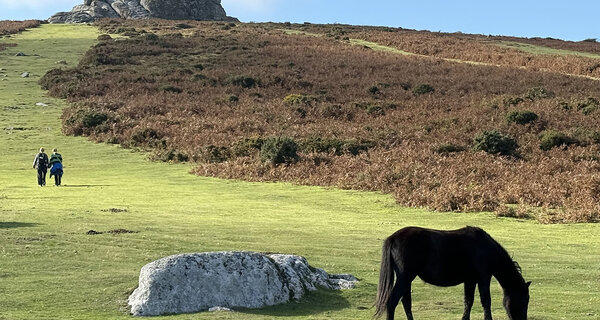Environment
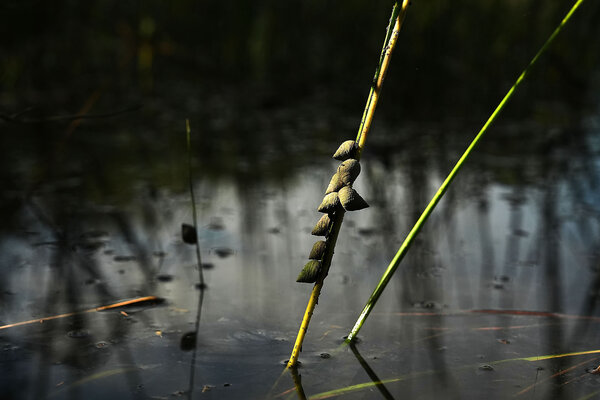 EPA’s new clean-water rules: What a farmer, builder, and scientist sayThe EPA proposes to narrow the scope of a key part of the Clean Water Act – a change criticized by environmental groups but welcomed by businesses.
EPA’s new clean-water rules: What a farmer, builder, and scientist sayThe EPA proposes to narrow the scope of a key part of the Clean Water Act – a change criticized by environmental groups but welcomed by businesses.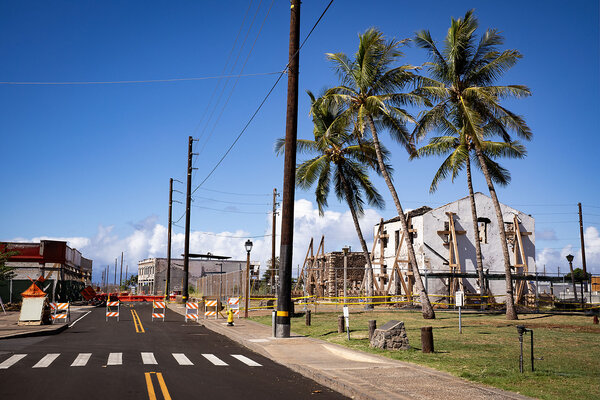 Regaining a sense of place: People and culture come first after Lahaina wildfireAfter the deadliest fire in 100 years of U.S. history, houses are rising from the ground once again in Hawaii. But the people of Lahaina are trying to do more than rebuild buildings – they are also trying to rebuild their culture.
Regaining a sense of place: People and culture come first after Lahaina wildfireAfter the deadliest fire in 100 years of U.S. history, houses are rising from the ground once again in Hawaii. But the people of Lahaina are trying to do more than rebuild buildings – they are also trying to rebuild their culture.
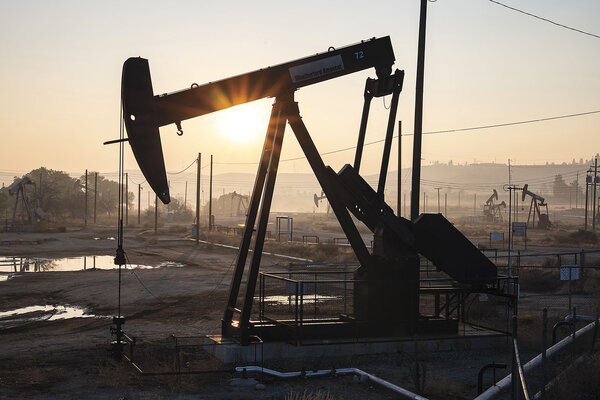 Make Oil Great Again? Even California drills as global climate action stalls.Gov. Gavin Newsom made green energy a priority. But as President Donald Trump makes oil the focus of U.S. energy policy, even California considers “Drill, baby, drill.”
Make Oil Great Again? Even California drills as global climate action stalls.Gov. Gavin Newsom made green energy a priority. But as President Donald Trump makes oil the focus of U.S. energy policy, even California considers “Drill, baby, drill.” Climate money is flowing around the globe. Sometimes, corruption makes it disappear.Protesters accuse the Philippine government of misusing billions in climate money. One issue concerns whether such spending reaches the most vulnerable.
Climate money is flowing around the globe. Sometimes, corruption makes it disappear.Protesters accuse the Philippine government of misusing billions in climate money. One issue concerns whether such spending reaches the most vulnerable.
More Environment
VIEW ALL
 She lost her husband, then LA fires took her home. How will she shape her future?Connie Bell's husband died a month before the LA wildfires destroyed her Malibu home. Now, she charts her future, with exhilarating and daunting choices.
She lost her husband, then LA fires took her home. How will she shape her future?Connie Bell's husband died a month before the LA wildfires destroyed her Malibu home. Now, she charts her future, with exhilarating and daunting choices. They want to be ‘Altadena strong.’ Finances are making it tough.Nine months after the Eaton Fire, an Altadena family navigates the red tape that is hampering recovery for those who lost it all in the blaze. How much of their daughter’s childhood will be spent in limbo? The third in our series from Olive Avenue. Read Parts 1 and 2.
They want to be ‘Altadena strong.’ Finances are making it tough.Nine months after the Eaton Fire, an Altadena family navigates the red tape that is hampering recovery for those who lost it all in the blaze. How much of their daughter’s childhood will be spent in limbo? The third in our series from Olive Avenue. Read Parts 1 and 2.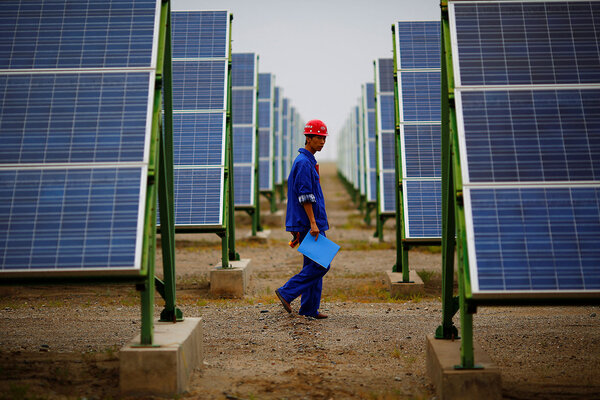 What China’s landmark climate pledge means for the fight against global warmingIn a first, China has set an absolute target for cutting emissions. Its pledge also covers greenhouse gas emissions and economic sectors.
What China’s landmark climate pledge means for the fight against global warmingIn a first, China has set an absolute target for cutting emissions. Its pledge also covers greenhouse gas emissions and economic sectors.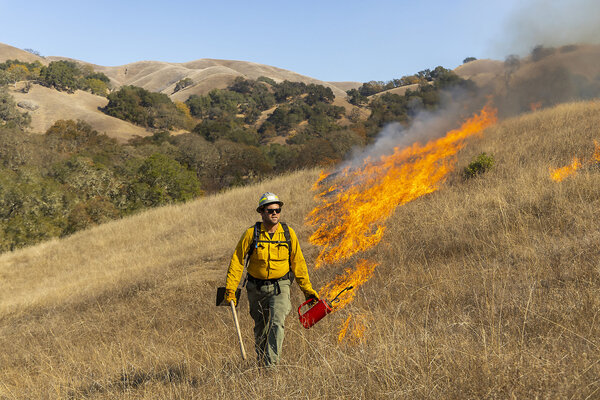 Fighting wildfire with fire: California residents, once wary, embrace ‘controlled burns’California once suppressed “controlled burns,” an Indigenous practice. Residents are now embracing it to reduce the growing threat of wildfire.
Fighting wildfire with fire: California residents, once wary, embrace ‘controlled burns’California once suppressed “controlled burns,” an Indigenous practice. Residents are now embracing it to reduce the growing threat of wildfire. How Jane Goodall inspired my daughter: It started with chickens.With the world remembering Jane Goodall, here’s how one child sees her legacy: “She realized something true that nobody else recognized.”
How Jane Goodall inspired my daughter: It started with chickens.With the world remembering Jane Goodall, here’s how one child sees her legacy: “She realized something true that nobody else recognized.”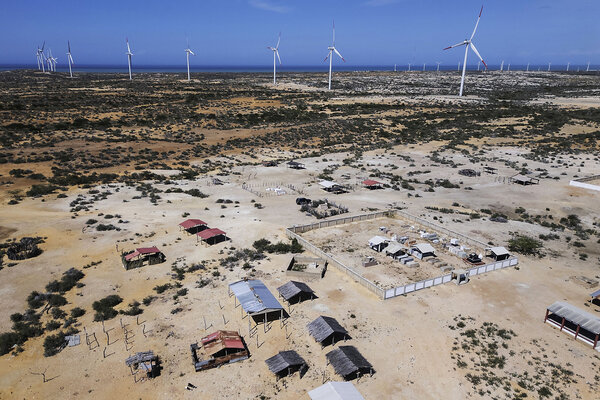 Can resource-rich countries go green? Colombia’s trying to find out.President Gustavo Petro is rushing to make Colombia green. But his energy agenda highlights the messy trade-offs called for when fossil fuels remain key to the economy.
Can resource-rich countries go green? Colombia’s trying to find out.President Gustavo Petro is rushing to make Colombia green. But his energy agenda highlights the messy trade-offs called for when fossil fuels remain key to the economy.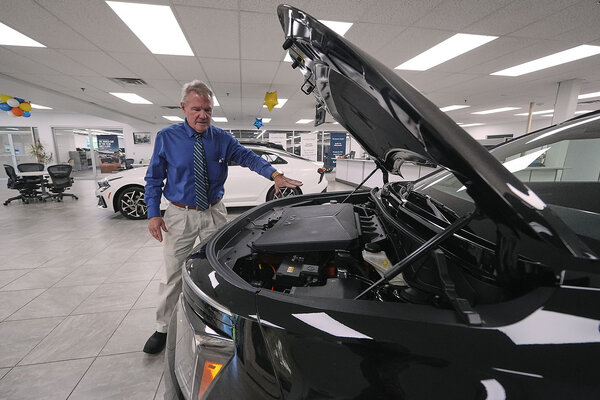 The EV tax credit is ending. How could that affect the US car market?Electric vehicle sales jumped after the U.S. announced it would end a tax credit. Without the incentive, sales may dip, although automakers may offer discounts to lure buyers.
The EV tax credit is ending. How could that affect the US car market?Electric vehicle sales jumped after the U.S. announced it would end a tax credit. Without the incentive, sales may dip, although automakers may offer discounts to lure buyers.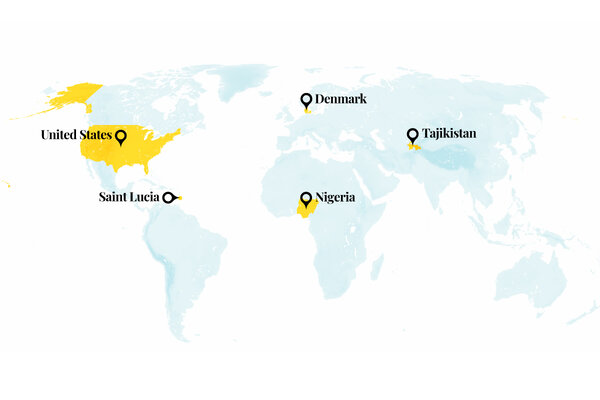 How to create affordable housing for more people, and make a whole city a spongeProgress roundup: Copenhagen’s sponge-city strategy protects from floods, and more places in the U.S. adopt social housing to lock in affordability.
How to create affordable housing for more people, and make a whole city a spongeProgress roundup: Copenhagen’s sponge-city strategy protects from floods, and more places in the U.S. adopt social housing to lock in affordability.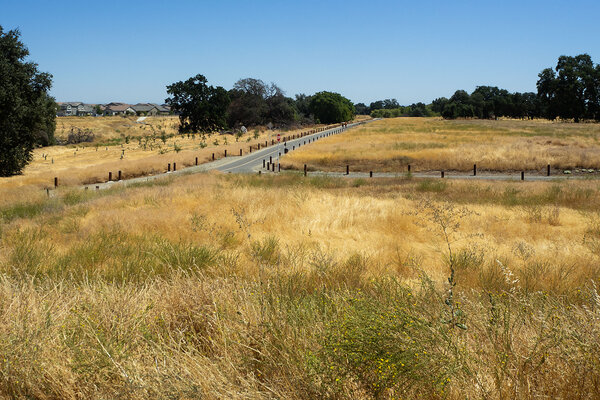 As cities seek ways to prevent floods, a California town has a success story to shareDisasters in Texas and North Carolina over the past year underscore how costly interior floods can be. After Roseville, California, was hit by destructive floods in the 1980s and ’90s, the city turned itself into a model of preparedness and hazard mitigation.
As cities seek ways to prevent floods, a California town has a success story to shareDisasters in Texas and North Carolina over the past year underscore how costly interior floods can be. After Roseville, California, was hit by destructive floods in the 1980s and ’90s, the city turned itself into a model of preparedness and hazard mitigation.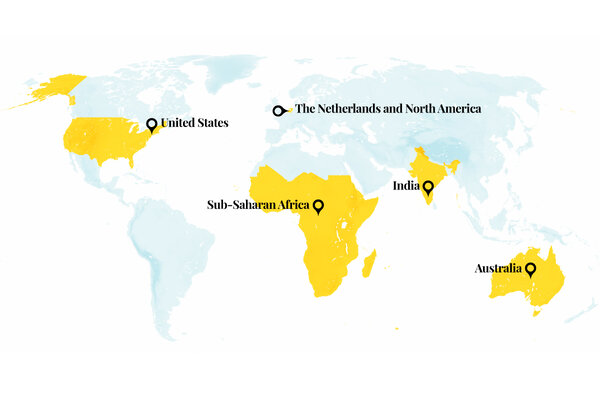 Where cellphones help users save money, and pricey calls are now freeProgress roundup: To better connect incarcerated New Yorkers with loved ones, the state is paying for phone calls. In Africa, mobile money helps people save.
Where cellphones help users save money, and pricey calls are now freeProgress roundup: To better connect incarcerated New Yorkers with loved ones, the state is paying for phone calls. In Africa, mobile money helps people save.
Monitor's Best: Top 5
 Marjorie Taylor Greene’s split with Trump is the talk of her Georgia district
Marjorie Taylor Greene’s split with Trump is the talk of her Georgia district Most Americans have avoided shutdown woes. That might change.
Most Americans have avoided shutdown woes. That might change. Government shutdown drags on as Republicans, Democrats dig in
Government shutdown drags on as Republicans, Democrats dig in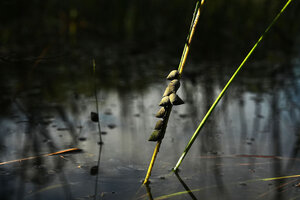 EPA’s new clean-water rules: What a farmer, builder, and scientist say
EPA’s new clean-water rules: What a farmer, builder, and scientist say Democrats are hungry for a comeback. Will Spanberger lead the way in Virginia?
Democrats are hungry for a comeback. Will Spanberger lead the way in Virginia?
